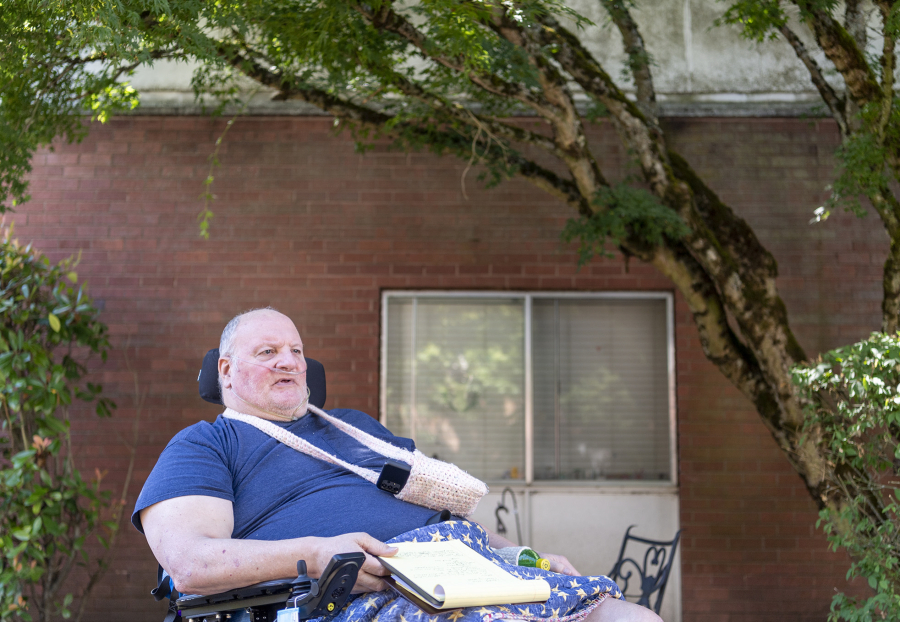Stephen Ingroum sits in his electric wheelchair in the sunny courtyard at The Oaks at Timberline Rehabilitation Center in Vancouver. Others stroll around the courtyard, soaking in the sun and getting some exercise — it’s one of the few ways residents like Ingroum can socialize and breathe fresh air.




